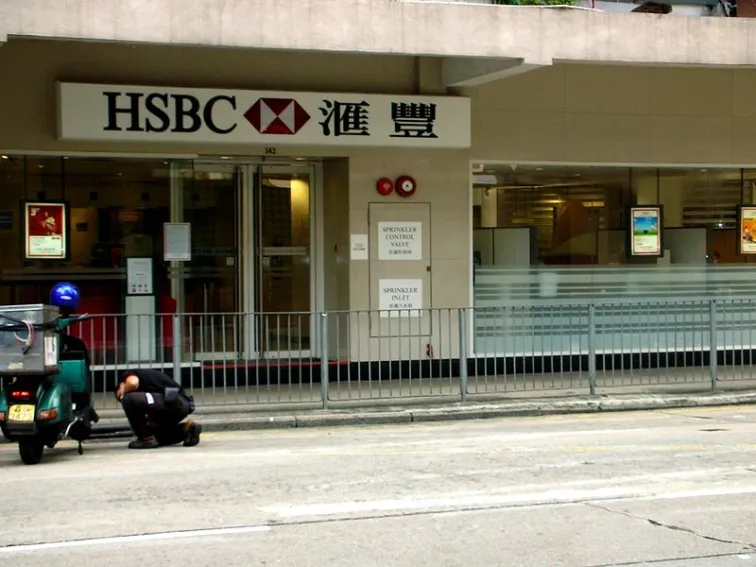
What you need to know about Hong Kong banks’ exposure to China
Among the global players, only HSBC has a material exposure to China.
According to CLSA, this analysis uses the disclosed geographic segmental reporting and thus does not include the “greater China” or “network” income that these banks often attribute to their China presence - ie, revenue and profit that they earn outside of China as a consequence of their presence in the country.
That is, the analysis arguably understates their exposure to China, but this is necessary to achieve a reasonably consistent treatment.
Here's more from CLSA:
BOCHK does not disclose a geographic breakdown of its group earnings, stating that over 90% of the Group’s revenues, profit before tax and assets are derived from Hong Kong.
Given that around 18% of BOCHK loans are to customers in China (though not necessarily for sue on the mainland), we guesstimate a figure of 10% for the share of group PBT.
Only two banks - BEA and Wing Hang - have a material proportion of group earnings directly exposed to China. For Wing Hang this exposure is actually split roughly three-quarters MAcau and one-quarter the PRC, leaving BEA as the bank most directly exposed to mainland China.
Among the global/regional players - HSBC, StanChart and DBS - only HSBC has a material exposure to China, with roughly 13% of group PBT, or around US$3.1bn in 2012. Of this, 10ppts (US$2,340m) was associate income from its stakes in Bocom and Industrial Bank. We exclude HSBC’s associate earnings from the stake in Ping An, which it sold earlier this year.
For Hang Seng, Industrial Bank’s associate income was much more substantial in proportion at 23% of group PBT, far exceeding the 2% it earned from its own operations on the mainland.
StanChart lost US$114m before tax on its direct China operations last year, offset by modest associate income from its 19.9% stake in Bank of Bohai. LEaving aside unquantified “network” earning with a China connection, this leaves the observable profit base from China as an immaterial proportion of group PBT.
DBS sourced only around 2% of group PBT from mainland China in 2012. While its “Greater China ex-Hong Kong” division generated S$137m of PBT (ie, 3.3% of group PBT), we estimate a good third of that amount came from its Taiwan operations, leaving only c.2% from the mainland itself.
Much like Hang Seng, Dah Sing’s equity-accounted income (23% of group PBT) from its 20% stake in Bank of Chongqing dominated its China exposure.
HSBC’s China exposure
From the cursory analysis above, it is clear that the HSBC group’s associate investments dominate the Hong Kong banking system’s exposure to China.
We have left HSBC’s associate income from its 15.57% stake in Ping An Insurance out of the analysis, as HSBC completed the sale of this stake in February this year, making the historical earnings from this source irrelevant to HSBC’s outlook.
Indeed, if we track HSBC group earnings since 2006, the last financial year before the GFC hit it, China overall (ie, including the associate earnings from Ping An over the period) has been the single largest contributor to PBT growth over the period, outpacing even hong Kong. Note that HSBC’s overall earnings declines in Europe and North America, so a different way to look at China is that, without it, HSBC would have lost even more earnings at group level.






![Lorem Ipsum [ABF 1]](https://cmg-qa.s3.ap-southeast-1.amazonaws.com/s3fs-public/styles/exclusive_featured_article/public/2025-03/a_hand_pointing_to_a_futuristic_technology_5b87c9d0e3_1.png.webp?itok=2w0y1WhS)


![Cross Domain [Manu + SBR + ABF + ABR + FMCG + HBR + ]](https://cmg-qa.s3.ap-southeast-1.amazonaws.com/s3fs-public/styles/exclusive_featured_article/public/2025-01/earth-3537401_1920_4.jpg.webp?itok=WaRpTJwE)








 Advertise
Advertise

